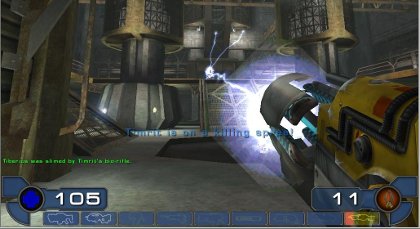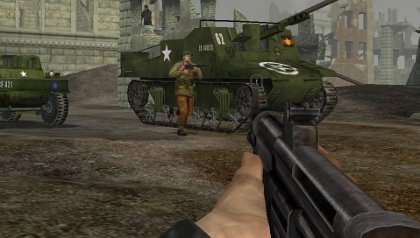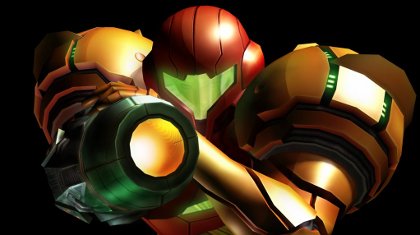PC owners could also brag of major releases like Serious Sam, Return To Castle Wolfenstein, Jedi Outcast, Soldier of Fortune 2, Vietcong, Unreal 2 and Operation Flashpoint. All enjoyed lengthy periods of exclusivity on the PC, and rewarded continued investment in new graphics cards such as Nvidia’s GeForce and ATi’s Radeon range.
Battlefield 1942′s release in September of 2002 illustrated the growing popularity of online gaming, and the PC’s centrality in this area. Credited with being among the first commercial FPS titles to encourage genuine teamwork, it quickly became the pre-eminent online shooter.
But while the PC was undoubtedly the best fit for the FPS in terms of graphical fidelity, controls and online play, it was evident that all was not well with the platform from both a gamer and industry perspective.
Fuelled by the growth of broadband and torrent sites, piracy was rampant, and sales of PC games were accordingly poor in comparison to those of console titles, despite being generally cheaper. Simple economics dictated that publishers set their sights on the console market.
On the other hand, the situation on consoles wasn’t exactly ideal either. Whatever the much-touted performance of PS2 or Xbox, the reality was that gamers were being fed less than stellar conversions of hit PC titles (such as Half-Life, Counter Strike, Deus Ex and Unreal 2), often a year or more late.
For those publishers who got their console strategy right, the rewards were obvious. Console-specific titles such as TimeSplitters 2 and Metroid Prime added to the growing evidence that console FPSs could be just as impressive as their PC counterparts and sales followed.
From 2003 onwards, publishers such as Ubisoft went even further. By utilising Epic’s cross-platform Unreal Engine 2, the French company began designing FPS games such as XIII, Rainbow Six 3 and Brothers In Arms as multi-platform titles from the word go, releasing on PC and console near-simultaneously.








 Satoru Iwata Video Interview - the late Nintendo president spoke with Kikizo in 2004 as 'Nintendo Revolution' loomed.
Satoru Iwata Video Interview - the late Nintendo president spoke with Kikizo in 2004 as 'Nintendo Revolution' loomed. Kaz Hirai Video Interview - the first of Kikizo's interviews with the man who went on to become global head of Sony.
Kaz Hirai Video Interview - the first of Kikizo's interviews with the man who went on to become global head of Sony. Ed Fries Video Interview - one of Xbox's founders discusses an epic journey from Excel to Xbox.
Ed Fries Video Interview - one of Xbox's founders discusses an epic journey from Excel to Xbox. Yu Suzuki, the Kikizo Interview - we spend time with one of gaming's most revered creators.
Yu Suzuki, the Kikizo Interview - we spend time with one of gaming's most revered creators. Tetris - The Making of an Icon: Alexey Pajitnov and Henk Rogers reveal the fascinating story behind Tetris
Tetris - The Making of an Icon: Alexey Pajitnov and Henk Rogers reveal the fascinating story behind Tetris Rare founders, Chris and Tim Stamper - their only interview? Genuinely 'rare' sit down with founders of the legendary studio.
Rare founders, Chris and Tim Stamper - their only interview? Genuinely 'rare' sit down with founders of the legendary studio. The History of First-Person Shooters - a retrospective, from Maze War to Modern Warfare
The History of First-Person Shooters - a retrospective, from Maze War to Modern Warfare
I want foregathering utile information , this post has got me even more info! .